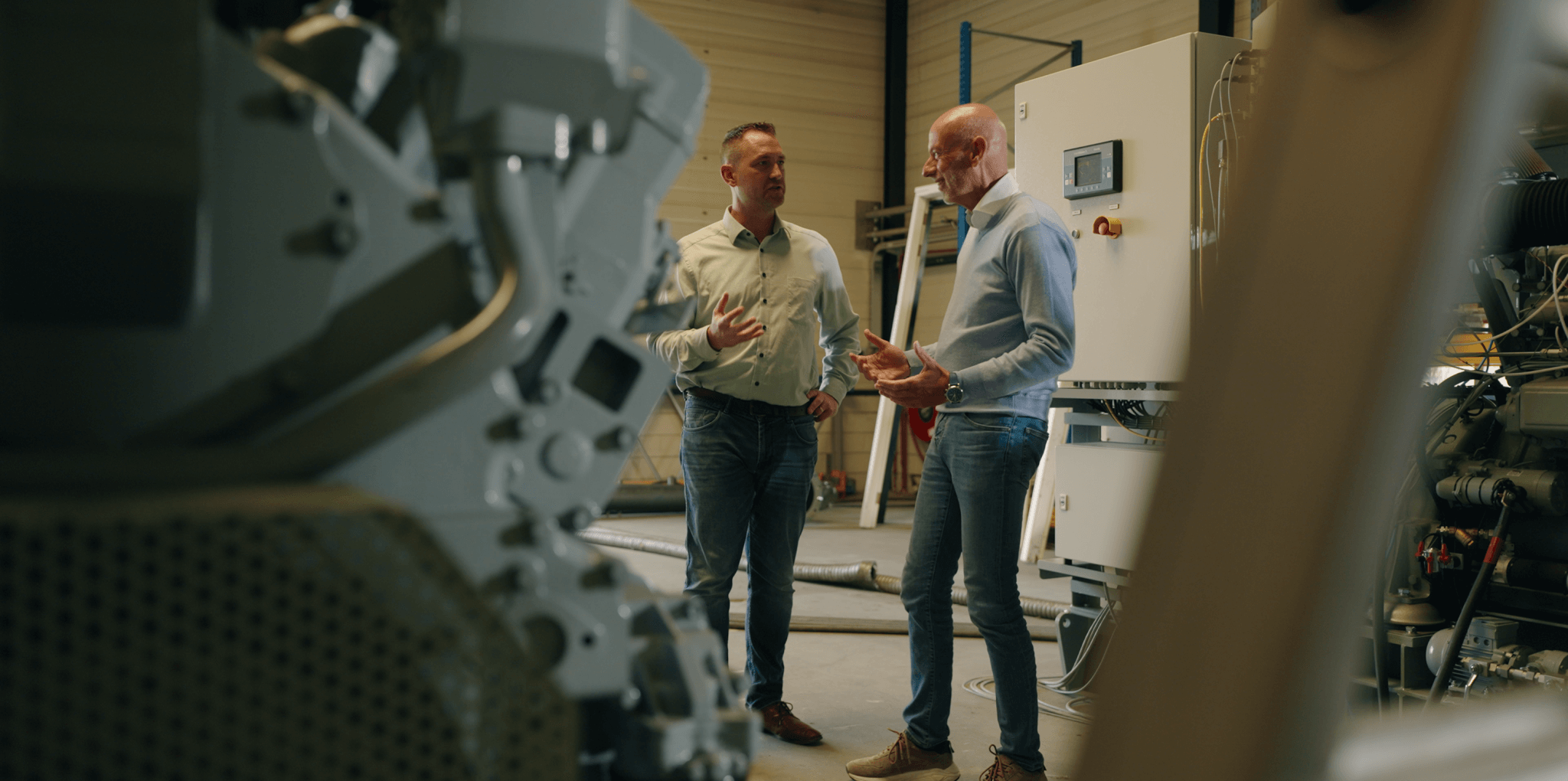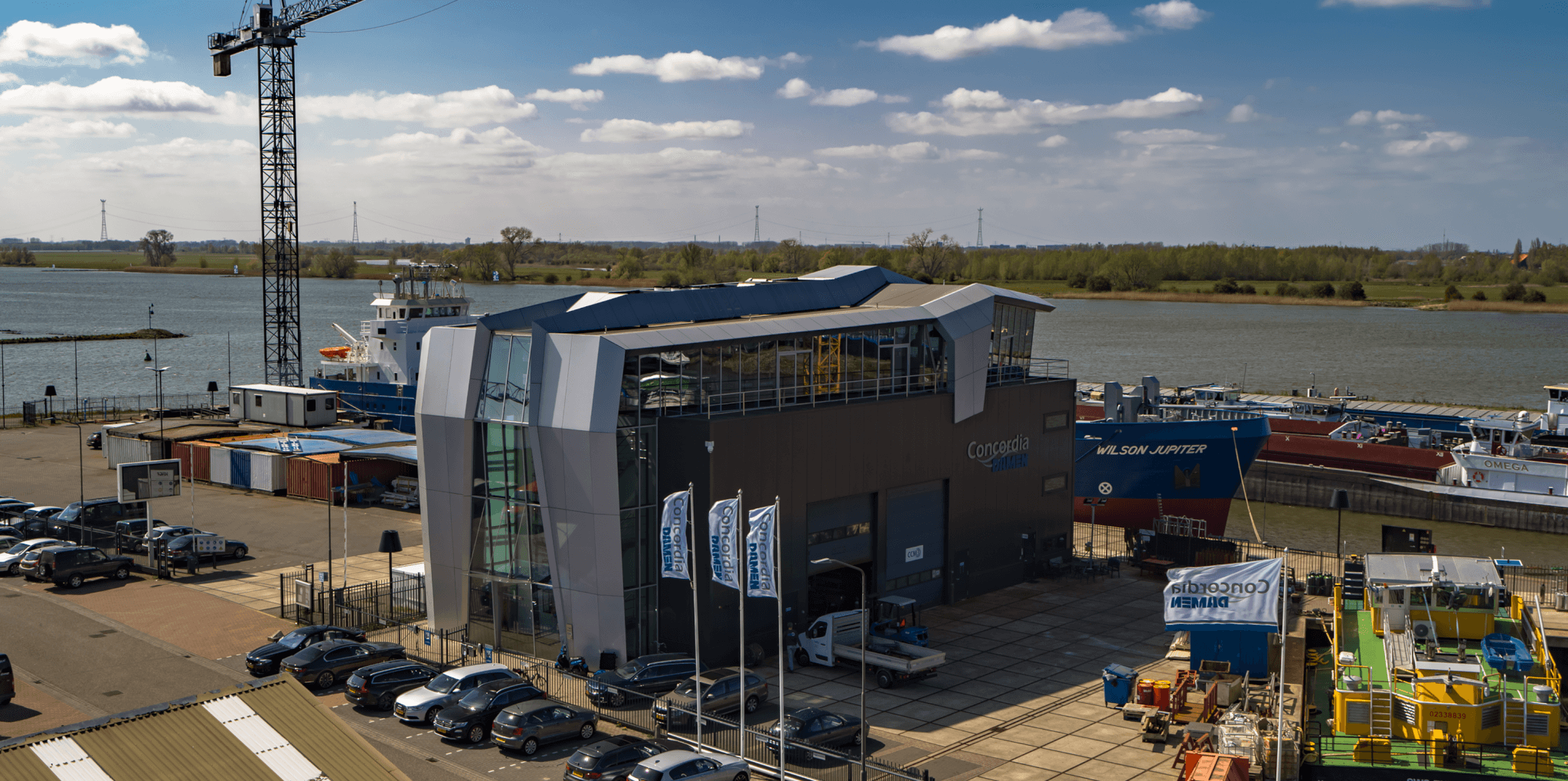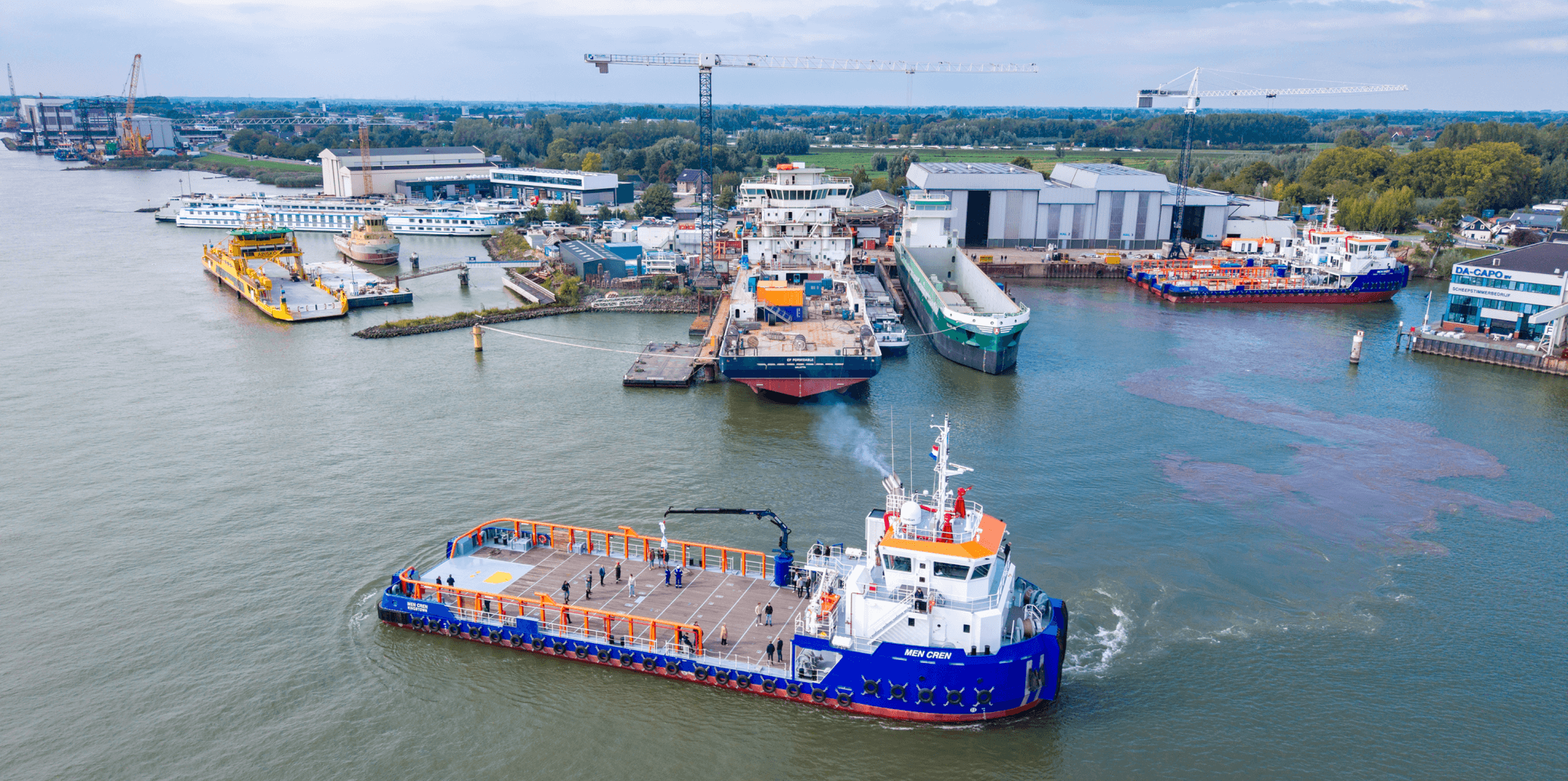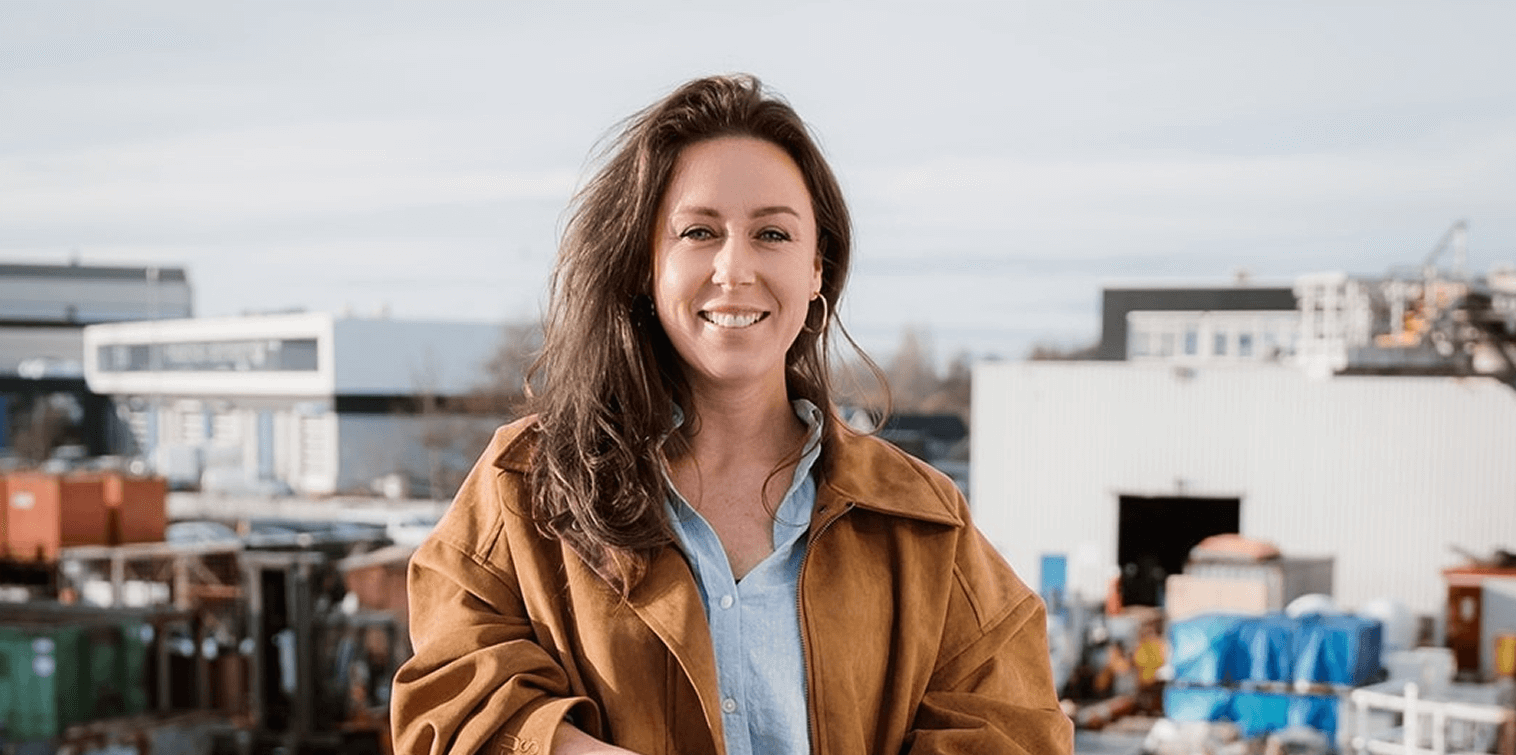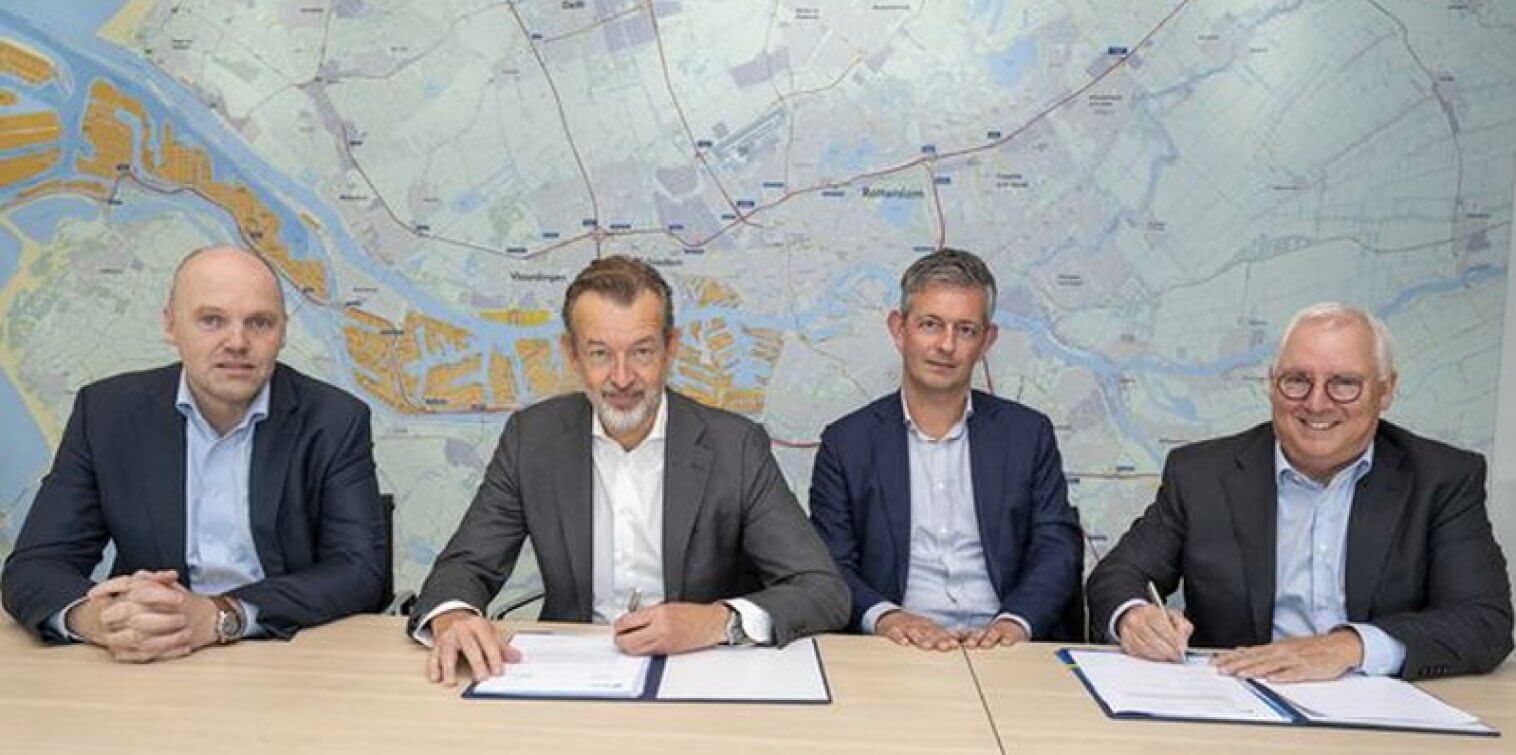Learn more about the energy transition in the Rotterdam region.
The project marks a significant step forward in the construction of infrastructure for the energy transition. The pipeline strip will accommodate pipes belonging to HyTransPort.RTM and Porthos for the movement of hydrogen and CO2.
Expanding the capacity along Moezelweg in the Europoort area will require the relocation of the existing trunk line, the installation of an earth-retaining structure and the excavation of a section of embankment. The new pipeline strip will be 7.60 metres wide, creating space for six or seven cables and pipes. The project is scheduled for completion at the end of 2023.
HyTransPort.RTM and Porthos
The HyTransPort.RTM hydrogen pipeline is an open access pipeline for any company wishing to consume or supply hydrogen. Shell has become the first company to sign up to use HyTransPort.RTM. Holland Hydrogen I, the electrolyser that Shell is going to build on the Maasvlakte, will be connected to the pipeline.
Porthos, a joint venture between the Port of Rotterdam Authority, Gasunie and EBN is developing a project in which CO2 from industry in the port of Rotterdam will be captured, transported and stored in empty gas fields deep beneath the North Sea. Porthos will store about 37 Mtonnes of CO2, which is about 2.5 Mtonnes of CO2 per year for 15 years.
Climate targets
The Port of Rotterdam Authority is aiming for a 55% reduction in carbon emissions in the port industrial complex by 2030, and for the port to achieve climate neutrality by 2050. The ongoing projects that form the energy transition pillars will combine with hydrogen and biofuel production to reduce carbon emissions by 23 million tonnes. This represents 35% of the total Dutch carbon reduction target for 2030 (65 million tonnes). These projects will require a lot of additional infrastructure in the coming years, including pipelines and cables. Removing the bottleneck along the Moezelweg pipeline strip therefore marks a significant first step.
